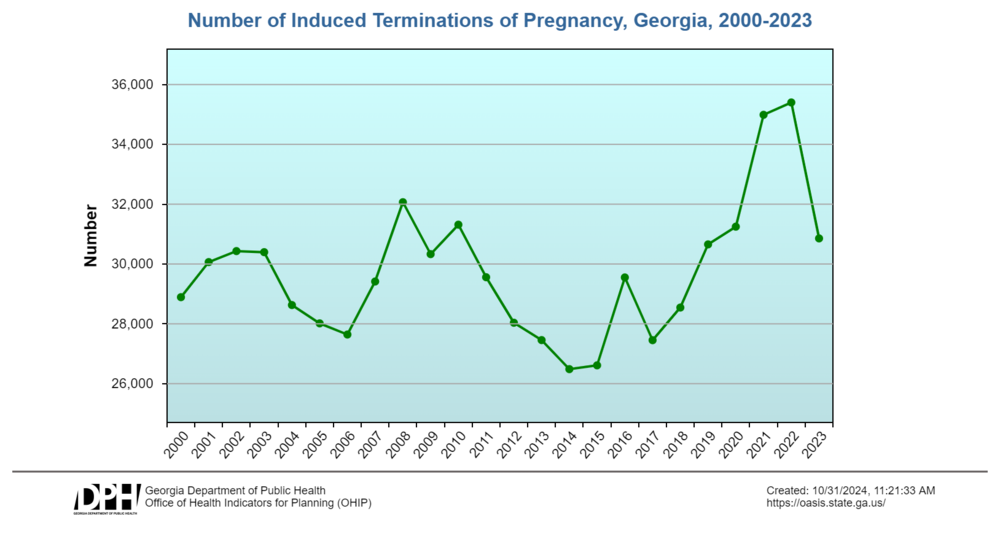
Section Branding
Header Content
Abortions in Georgia dipped last year, evidence of a changing landscape of reproductive care
Primary Content

Last year, abortions among Georgia residents went down about 13% compared to the previous year. That includes abortions managed for Georgia residents out of state.
It’s the first decline the state has seen in procedures since 2017, according to final data from the department of public health.
This represents the first full year of data following the Supreme Court’s decision to overturn Roe v. Wade, and following the decision by the Georgia Legislature to implement its own abortion law, House Bill 481, also known as the LIFE Act.
The legality of the law remains a point of contention between Georgia judges. Most recently, it was briefly overturned by Fulton County Superior Judge Robert McBurney before being quickly reinstated by the Georgia Supreme Court after an appeal on behalf of the state.
As it stands, abortions in Georgia are legal only before the detection of a so-called “fetal heartbeat,” or electrical pulses that occur around where the fetal heart will be, which can be seen on an ultrasound usually around six weeks of pregnancy.
Because most pregnancy tests work the best around the first week of a missed period, realistically people have only about two weeks to figure out they’re pregnant.
That hasn’t meant fewer patients seeking care, said Atlanta-based OB-GYN Mimi Zieman. She’s seen people coming in at the earliest signs of pregnancy.
“But because that's so early where our ban is in effect, many, many people are turned away,” Zieman said.
That’s likely what’s happening in the over a dozen other states that have enacted similar laws to Georgia’s, or fully banned abortions with limited exceptions.
Yet, abortions went up nationally by about 10%. Even states that limited abortion access saw numbers go up last year, according to estimates released March 2024.
Some health care providers suggest what’s reported may be an undercount. Medication abortions are more common now, made more accessible through telehealth in many states. And shield laws in 18 states mean providers are protected from legal action if they care for people from other states.
At Planned Parenthood, it’s clear that demand in states with restrictions is up. According to spokesperson Jaylen Black, clinics in Georgia, Alabama and Mississippi ranked third-highest for patient volume out of all of Planned Parenthood’s affiliates, of which there are 49.
On top of operating hundreds of health centers across the country, Planned Parenthood provides financial and logistics assistance to patients who couldn’t otherwise seek an abortion in their state of residence.
But Zieman said even workarounds for access can’t neutralize the consequences that growing restrictions have.
“You cannot stress enough the inconvenience and stress put on women who need to travel,” she said, not to mention reports of medical complications due to what many providers find are unclear rules around what they can and cannot do. “I can't underscore enough that women's lives are at stake.”

